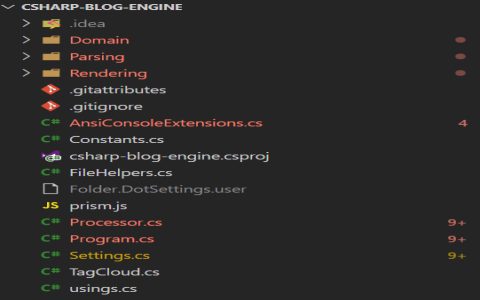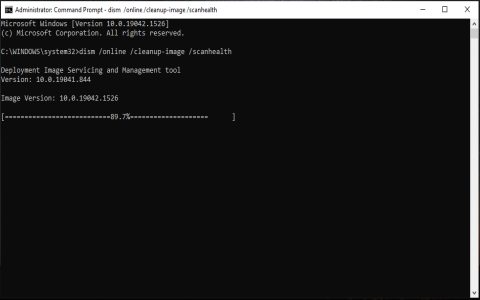The error "the repository does not have a Release file" typically indicates that your system's package manager cannot find a critical metadata file at the specified repository URL. This `Release` file is essential for the package manager to understand the contents and structure of the repository.
Common Causes
- Incorrect Repository URL: Typos or an invalid path in your package manager's configuration files (e.g.,
/etc/apt/*or files within/etc/apt/*.d/for Debian-based systems). - Repository No Longer Available: The repository may have been discontinued, moved to a new URL, or is temporarily offline.
- Distribution Mismatch: The repository might not support your operating system's version or distribution codename. For instance, using a repository URL intended for an older or newer distribution than what you are running.
- Network Connectivity Problems: Firewalls, proxy configurations, DNS resolution failures, or general internet connection issues can prevent access to the repository.
- Unsupported Architecture: The repository may not provide packages for your system's CPU architecture (e.g., trying to access an
amd64repository from anarm64system if the repository does not supportarm64for that specific distribution/component). - Server-Side Issues: The repository server itself might be experiencing temporary problems, or the `Release` file might be genuinely missing or misconfigured on the server for the specific path being accessed.
Troubleshooting Steps
To resolve this issue, consider the following steps:
- Verify Repository Configuration:
- Carefully inspect the repository URLs in your system's package source configuration files. Ensure there are no typos or incorrect paths. For Debian/Ubuntu systems, check
/etc/apt/*and files in/etc/apt/*.d/. - Confirm that the distribution codename (e.g.,
focal,jammy,bullseye) and components (e.g.,main,universe,stable) in the URL are correct for your system and are supported by the repository for the path you are trying to access.
- Carefully inspect the repository URLs in your system's package source configuration files. Ensure there are no typos or incorrect paths. For Debian/Ubuntu systems, check
- Check Repository Status and URL Validity:
- Try accessing the base repository URL or the specific
dists/CODENAME/path in a web browser. This can help confirm if the URL is valid and if the server is reachable. TheReleasefile is typically located at a path like.../dists/DIST_CODENAME/Release. - Search online for any announcements or status updates regarding the specific repository. It might have been moved, deprecated, or be experiencing known issues.
- Try accessing the base repository URL or the specific
- Test Network Connectivity:
- Use tools like
pingorcurlto test basic network connectivity to the repository's host. For example:ping *orcurl -I */path/to/repo/dists/DIST_CODENAME/Release. - If you are behind a proxy, ensure your package manager and system are correctly configured to use it.
- Check your DNS settings to ensure the repository hostname resolves correctly.
- Use tools like
- Check System Architecture:
- Ensure the repository supports your system's architecture (e.g.,
amd64,arm64) for the specific distribution and component you are targeting. You can find your system's architecture using a command likedpkg --print-architectureon Debian-based systems.
- Ensure the repository supports your system's architecture (e.g.,
- Refresh Package Lists:
- After making any changes to your repository configuration, attempt to update your package lists again (e.g.,
sudo apt updateon Debian-based systems). This action will attempt to re-fetch the `Release` files.
- After making any changes to your repository configuration, attempt to update your package lists again (e.g.,
- Temporarily Disable Problematic Repository:
- If a specific repository is causing the error and is not essential, you can temporarily disable it by commenting out its line in the configuration file (usually by adding a at the beginning of the line). This will allow other repositories to update correctly.
- Look for Official Mirrors or Alternatives:
- If the primary repository server is problematic, check if the project provides official mirror servers that you can switch to. Sometimes, a particular mirror might be out of sync or having issues.
The Role of the `Release` File
The `Release` file is a cornerstone of package repository metadata, particularly in systems like those using APT (Advanced Package Tool). It typically contains:

- Repository Information: Details such as
Origin,Label,Suite,Version,Codename,Architecturessupported (e.g.,amd64,i386,arm64), andComponentsavailable (e.g.,main,contrib,non-free,universe,multiverse). - Checksums: Cryptographic hashes (MD5, SHA256, SHA512) of other important metadata files within the repository, such as
Packagesfiles (which list available binary packages) andSourcesfiles (which list available source packages). These checksums are crucial for verifying the integrity and authenticity of these files, ensuring they have not been tampered with. - Date Information: Timestamps indicating when the repository was last updated or built.
- Acquire-By-Hash support: Indicates if the repository supports fetching package files by their hash, which can improve efficiency and security.
Its presence and correctness are vital for the package manager to securely and reliably manage software installations and updates. The absence of this file for a configured repository path means the package manager cannot verify the integrity or even discover the contents of that specific part of the repository.









